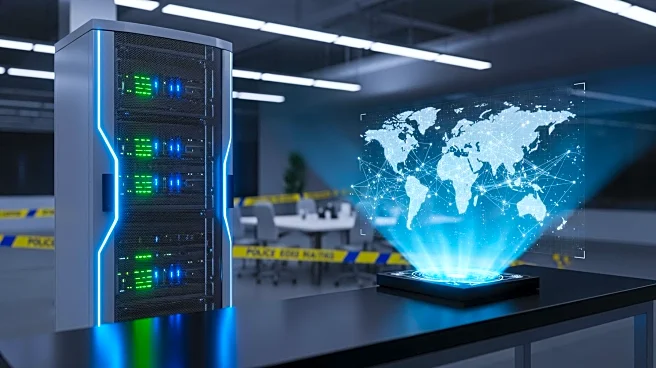What's Happening?
The U.S. Department of Defense, now referred to as the Department of War, has announced a new initiative called CYBERCOM 2.0 aimed at enhancing the operational capabilities of its cyber forces. This initiative seeks to address the inadequacies of traditional
military service models in meeting the demands of the cyber domain. The revised model integrates CYBERCOM with military departments to streamline the recruitment, assessment, selection, training, and retention of personnel. It is built on seven core attributes, including targeted recruiting, incentivizing cyber domain mastery, and providing specialized mission-specific training. The initiative also includes organizational and logistical attributes to ensure immediate operational readiness, such as presenting forces with headquarters and combat support, and optimizing unit phasing for sustainable operational tempo.
Why It's Important?
The CYBERCOM 2.0 initiative is significant as it aims to bolster the U.S. cyber forces' ability to counter threats from major adversaries, with China specifically mentioned as a concern. By overhauling career management and unit structure, the initiative seeks to develop a cyber force capable of increased lethality and operational effectiveness. This move is expected to enhance national security by ensuring that the U.S. maintains a competitive edge in cyber warfare. The initiative also highlights the growing importance of cyber capabilities in modern military strategy, reflecting a shift in focus towards domain mastery and mission agility.
What's Next?
The implementation of CYBERCOM 2.0 is projected to take several years, with some components extending into fiscal years 2032 and 2033. Key organizations such as the Cyber Innovation Warfare Center, Cyber Talent Management Organization, and Advanced Cyber Training and Education Center will play crucial roles in accelerating the development and delivery of operational cyber capabilities. As the initiative progresses, it will likely influence the broader defense strategy and resource allocation within the Pentagon, potentially leading to further investments in cyber infrastructure and training programs.
Beyond the Headlines
The CYBERCOM 2.0 initiative may have broader implications for the ethical and legal dimensions of cyber warfare. As the U.S. enhances its cyber capabilities, questions may arise regarding the rules of engagement and the potential for escalation in cyber conflicts. Additionally, the focus on domain mastery and mission agility could lead to long-term shifts in military training and career paths, emphasizing specialized skills over traditional military roles.















